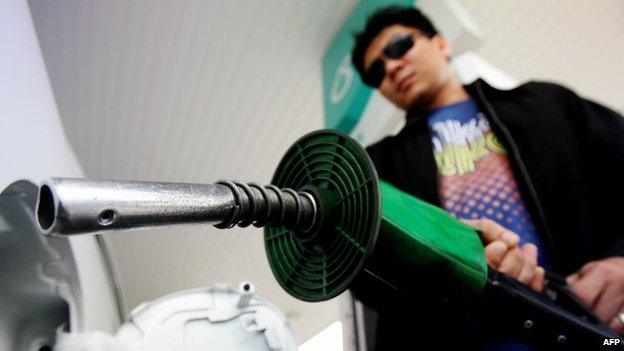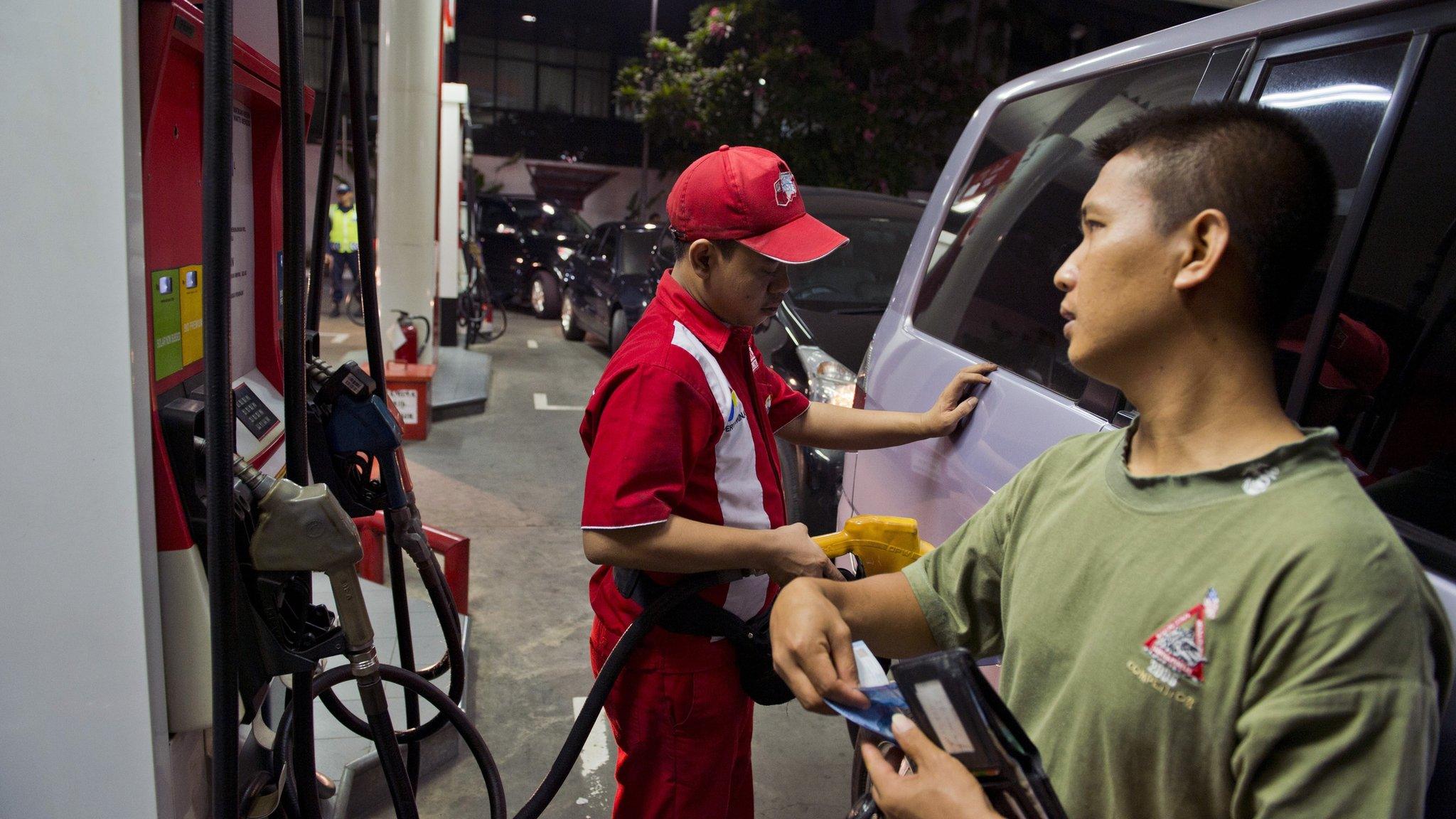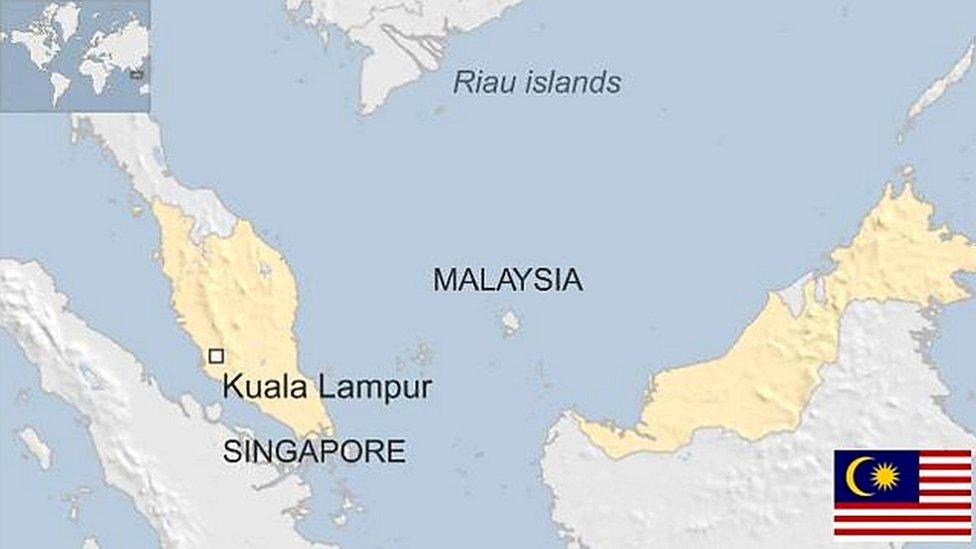Malaysia to end petrol and diesel subsidies
- Published

Malaysia's government has been subsidising the cost of fuel for decades
Malaysia plans to end decades-old petrol and diesel subsidies from next month in an attempt to save billions of dollars and reduce its fiscal deficit.
The government said prices of a popular grade of petrol and diesel would be fixed according to a "managed float".
This means they will move in tandem with global oil prices, which have lost more than 30% of their value in the past six months.
The Malaysian ringgit rose 0.3% against the US dollar on the news.
"If the market price of crude oil increases, the retail price of RON 95 [petrol] and diesel will also increase. And vice versa," Malaysia's Ministry of Domestic Trade, Co-operatives and Consumerism said in a statement.
"The move proves that the government is committed to ensure Malaysian citizens enjoy the most from the softening oil prices in the world".
Earlier this week, neighbouring Indonesia increased fuel prices by more than 30% after cutting subsidies in an attempt to save more than $8bn next year.
Malaysia, Southeast Asia's third-largest economy, increased fuel prices last October but still plans to spend more than $6bn this year on fuel subsidies.
Prime Minister Najib Razak is looking to narrow the country's fiscal deficit to 3.5% of gross domestic product this year and balance the books by 2020.
He plans to do this through a combination of higher taxes and reduced government spending.

Analysis: Jennifer Pak, BBC News, Kuala Lumpur
The Malaysian government says it spends more than half a billion dollars per month to keep the price of fuel artificially low.
Even foreigners such as myself are able to enjoy these subsidies.
However, Prime Minister Najib Razak has said this kind of spending is not sustainable and prevents him from investing in higher paying jobs.
He has gradually cut back on subsidies in recent years. But his popularity in the polls have also dropped and frustrated Malaysians have staged small street protests.
Some say the government should cut back on wasteful spending and curb corruption, which are frequently reported in the local press, before abolishing subsidies.
Officials say they are looking at ways to target subsidies to those most in need.
So even though it will not foot the bill for petrol and diesel anymore, the government will still subsidise food staples, cooking gas and electricity.

- Published18 November 2014

- Published19 May 2023
